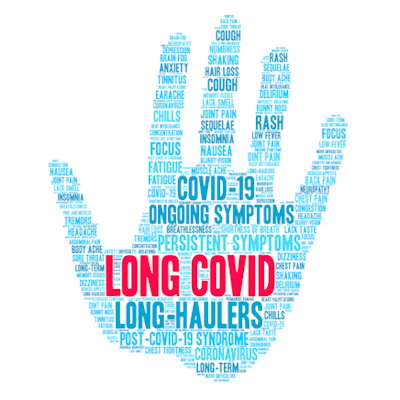March 9, 2023 -- Swiss researchers have found that the Omicron variant of SARS-CoV-2 is much less likely to lead to long COVID than the original wild-type virus circulating at the start of the COVID-19 pandemic.
Furthermore, long COVID is just as likely in people whose first infection was with Omicron as it is in people who never had COVID.
The research will be presented at this year's European Congress of Clinical Microbiology & Infectious Diseases, to be held in Copenhagen from April 15 to April 18, 2023.
Long COVID is a significant public health issue with prolonged, sometimes debilitating illness, limited treatment options, and uncertain outcomes. With the emergence and global dominance of the Omicron variant, and the accompanying explosion of infections, the Swiss researchers sought to discover which populations were most at risk of developing long COVID.
The prospective study involved 1,201 healthcare workers (81% female), median age 43, from nine Swiss healthcare networks. The participants, recruited between June and September 2020, underwent regular COVID-19 testing and reported their vaccination status. Long COVID symptoms were assessed in participants infected with the wild-type SARS-CoV-2 virus, the Omicron variant (BA.1), or both, and compared to uninfected controls.
In March 2021 (Q1), September 2021 (Q2), and June 2022 (Q3), participants completed online questionnaires on which of 18 long COVID symptoms they were experiencing. Commonly reported symptoms included loss of smell or taste, tiredness, weakness, exhaustion, and hair loss.
In Q1, the risk of long COVID symptoms was 67% higher for the 157 participants who had had the wild-type infection than for the uninfected controls. In Q3, the risk of long COVID symptoms were 37% higher for those who had had the wild-type infection. A similar pattern was observed for fatigue: In Q1, the risk of fatigue was 45% higher in those who'd had the wild-type virus than in the controls, but by Q3 the difference between the two groups was insignificant.
By contrast, the 429 participants whose first positive COVID-19 test was for the Omicron variant were no more likely to report long COVID symptoms than uninfected controls. Fatigue rates were also similar. Analysis also revealed that reinfection -- an Omicron infection after a wild-type infection -- posed no greater risk of long COVID than a wild-type infection alone.
While the participants' long COVID symptoms declined over time, they were still present after 18 months. By contrast, participants whose first positive test was for Omicron tended not to develop long COVID symptoms. Neither Omicron reinfections nor SARS-CoV-2 vaccination before Omicron infection had any influence on long COVID. Researchers say the results may be partly due to Omicron's tendency to cause milder initial illness than the wild-type virus; long COVID is known to be more common following severe illness.
"With Omicron still dominant globally today, our results should provide reassurance to those contracting COVID-19 for the first time, as well as those who have already had the wild-type virus," Cantonal Hospital St. Gallen's Dr. Carol Strahm, who will present the research, said in a statement.
Copyright © 2023 scienceboard.net







